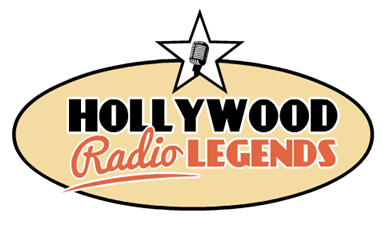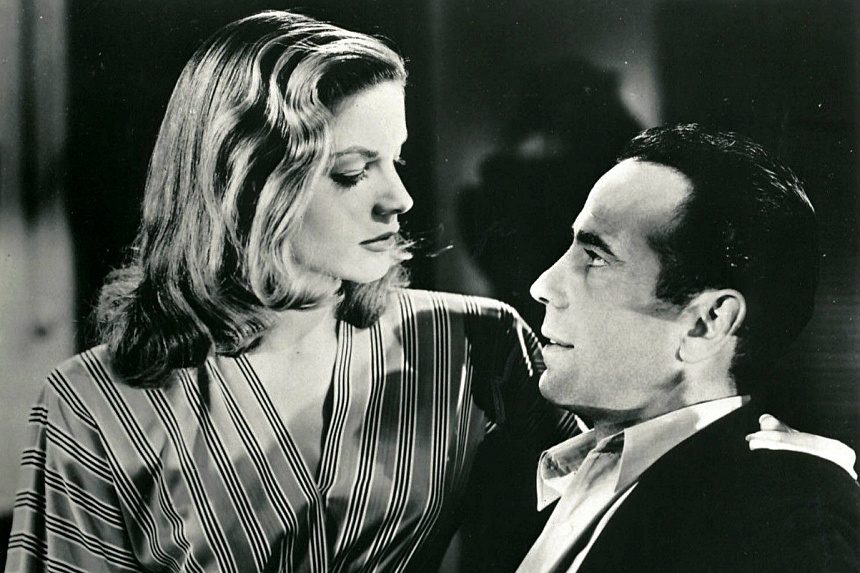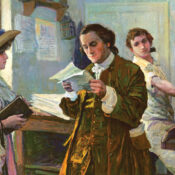
One of Hollywood’s first power couples, Humphrey Bogart and Lauren Bacall displayed on-screen sexual chemistry in a total of four movies. They were married in 1945, after their first film together. Networks regularly offered them their own weekly radio program, and in 1951, they finally agreed to star in the radio adventure series Bold Venture, which was somewhat reminiscent of Key Largo (1948), their final film together. Made by their own production company, Bold Venture starred Bogart as Slate Shannon, the proprietor of a small, quasi-respectable hotel in Havana, inhabited by a motley, shifting cast of characters.
Instead of Sam, the pianist of Casablanca, the narrative featured a calypso singer named King Moses. Shannon’s motorboat, the Bold Venture, was on stand-by, ready to roar to the rescue of a friend or track down an enemy. Lauren Bacall played Sailor Duval; she was ostensibly Shannon’s ward, but was given a sultry edge by the glamorous actress.
With its exotic Cuban background and Latin-American flavor, the weekly seafaring adventure program was loaded with gun-fights, pirates, questionable characters, and romantic intrigue. Film buffs who enjoyed Key Largo welcomed another taste of Bogart and Bacall’s combined talents.
Never one to let work interfere with pleasure, Bogart had stubbornly rejected all offers for he and Bacall to perform in a regular live radio series. But when radio syndicator Frederic W. Ziv offered them a series of their choosing, recorded around their schedule, and furnished a whopping budget of $12,000 per episode plus fees and royalties, the Bogarts couldn’t resist.
In a 1998 interview, Ziv recalled Bogart’s demands for the show. “I don’t want the usual detective story, with the typical detective and his husky-voiced blonde,” Bogart told scriptwriters Morton Fine and David Friedkin. “You know the type. There are at least ten or twelve on the air nightly, every week.” Attempting to follow the charismatic Bogart’s instructions, the scriptwriters came up with Bold Venture.
Bold Venture was produced by Bogart’s picture company, Santana Productions (named after a boat Bogart owned) and recorded in Ziv’s lavish Hollywood studio. The series premiered the last week of March 1951 and was syndicated to 400+ radio stations. Almost 40 percent of the nationwide sponsorship came from breweries, according to Ziv. The program was a tremendous success, earning the Bogarts more than $250,000 in just the first two years.
Carl Amari is the host of the nationally-syndicated nostalgia radio series Hollywood 360. Amari is also the curator of The Classic Radio Club.
Featured image: Lauren Bacall and Humphrey Bogart in To Have and Have Not (Wikimedia Commons)
Become a Saturday Evening Post member and enjoy unlimited access. Subscribe now

 Enjoy a FREE digital download of the classic radio comedy series Bold Venture starring Humphrey Bogart and Lauren Bacall. Log on to
Enjoy a FREE digital download of the classic radio comedy series Bold Venture starring Humphrey Bogart and Lauren Bacall. Log on to 


Comments
Love old time radio. So much bad news on TV I have taken to listening to these old programs for my own mental health. It’s a nice escape and high quality programming.
I was looking at this site today and found a lot of music videos and one of 2+ hours of Nate King Cole. Now I can’t find how to log in again to it. How can I get perminate access to this video?
He is my all-time favorite…
I recently streamed a 1940s episode of Suspense, where Bogart was the guest star. I could actually hear his muffled smoker coughs between lines!
“for he and Bacall” is incorrect. Should be “for him and Bacall”. The object of a preposition always takes objective case.